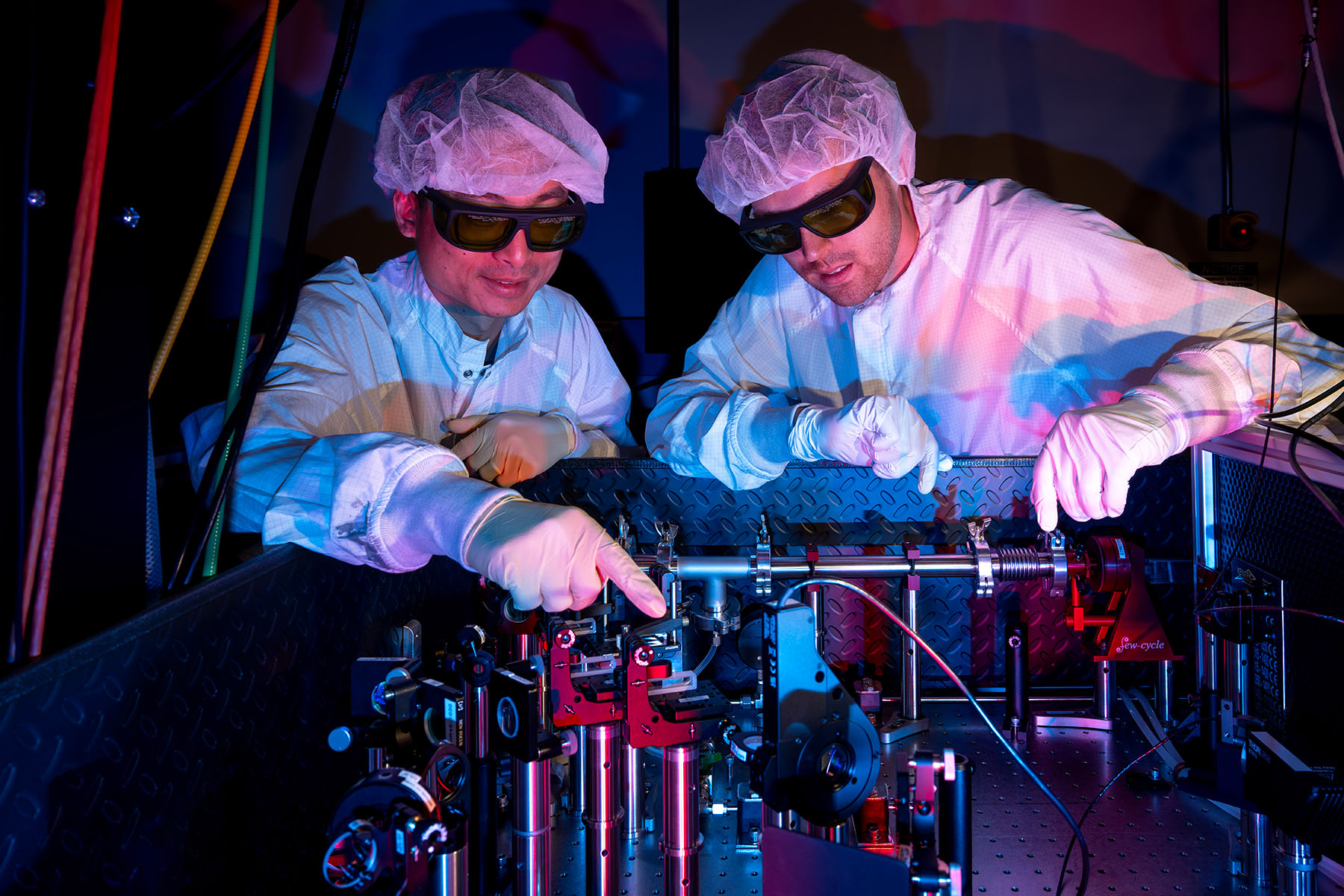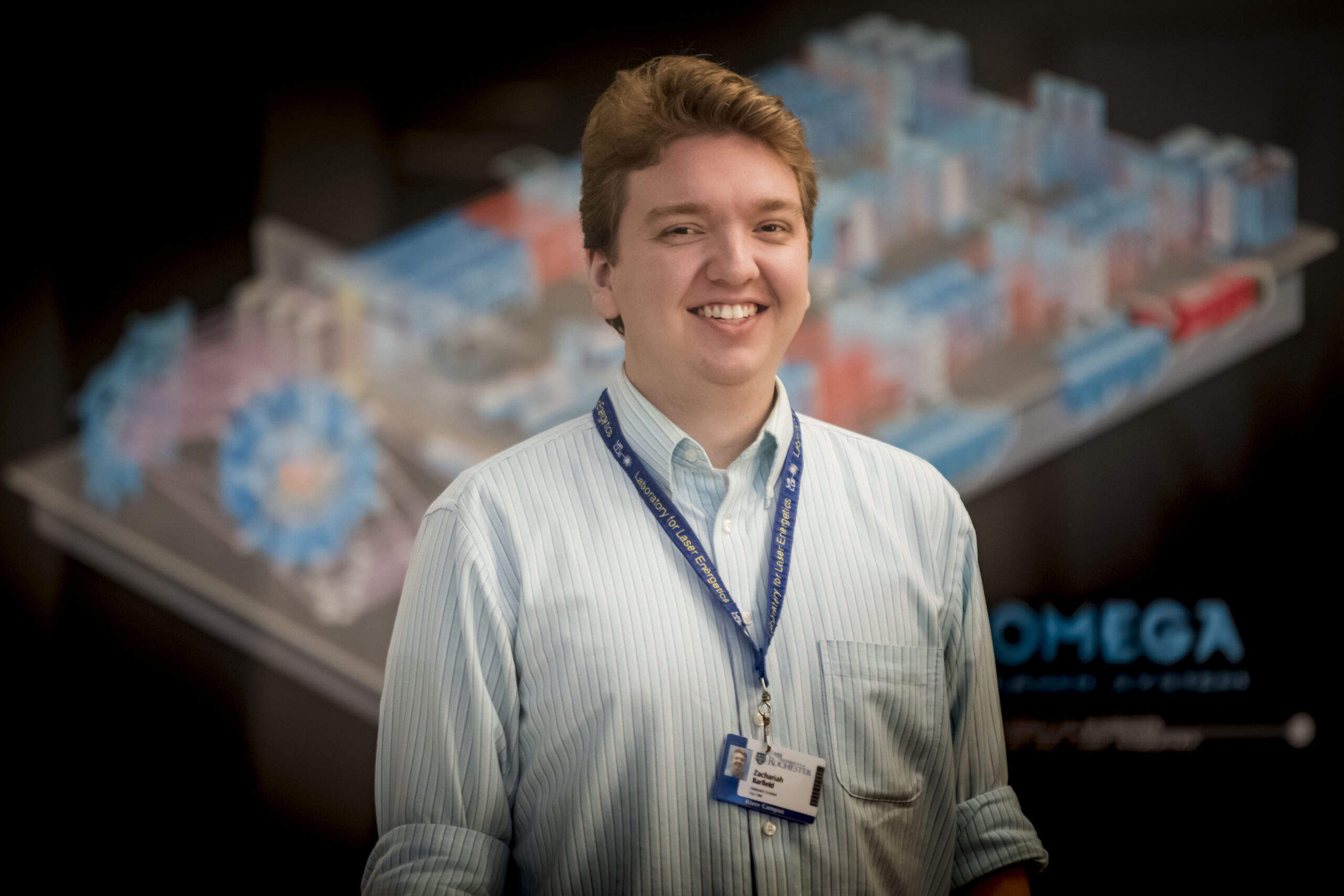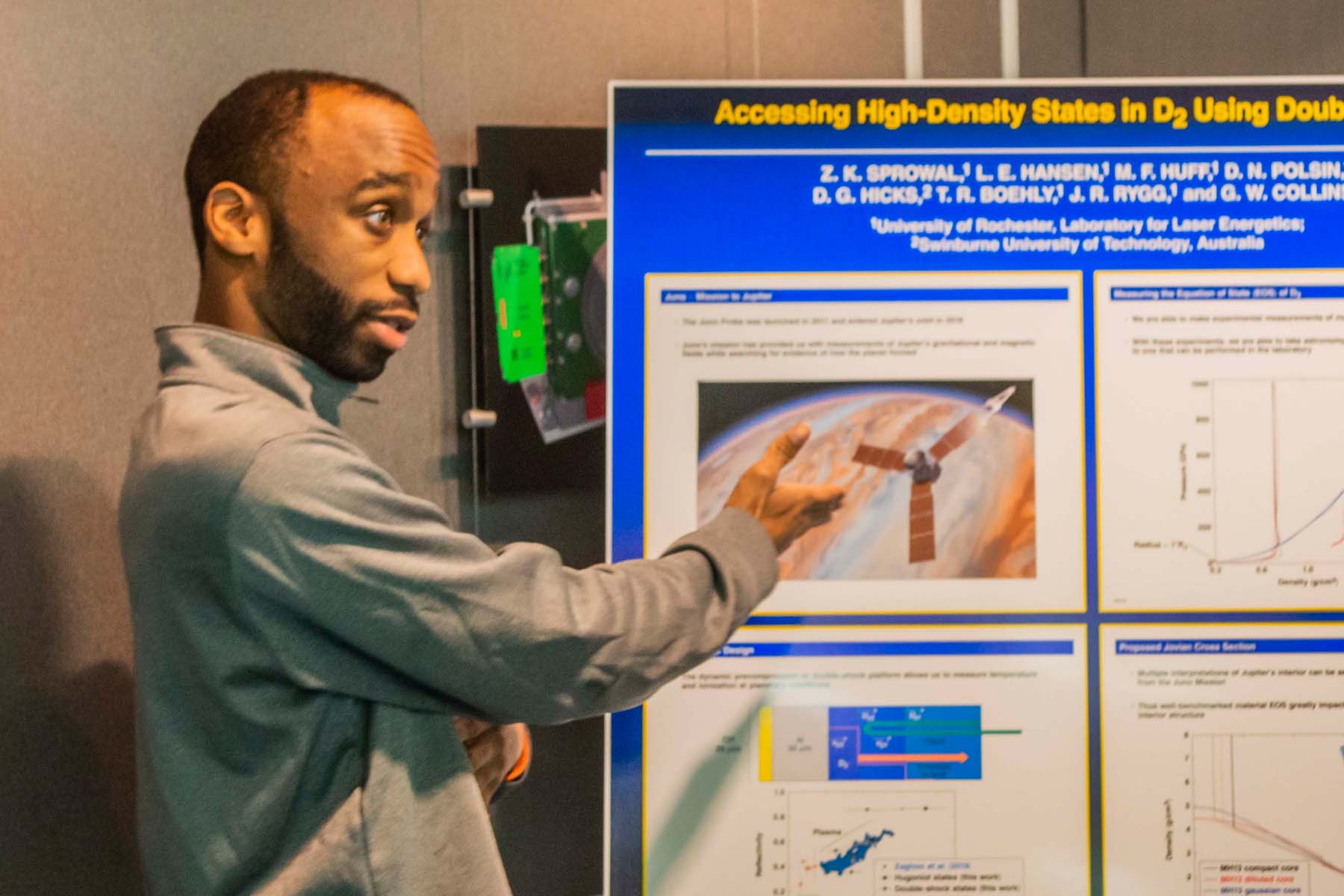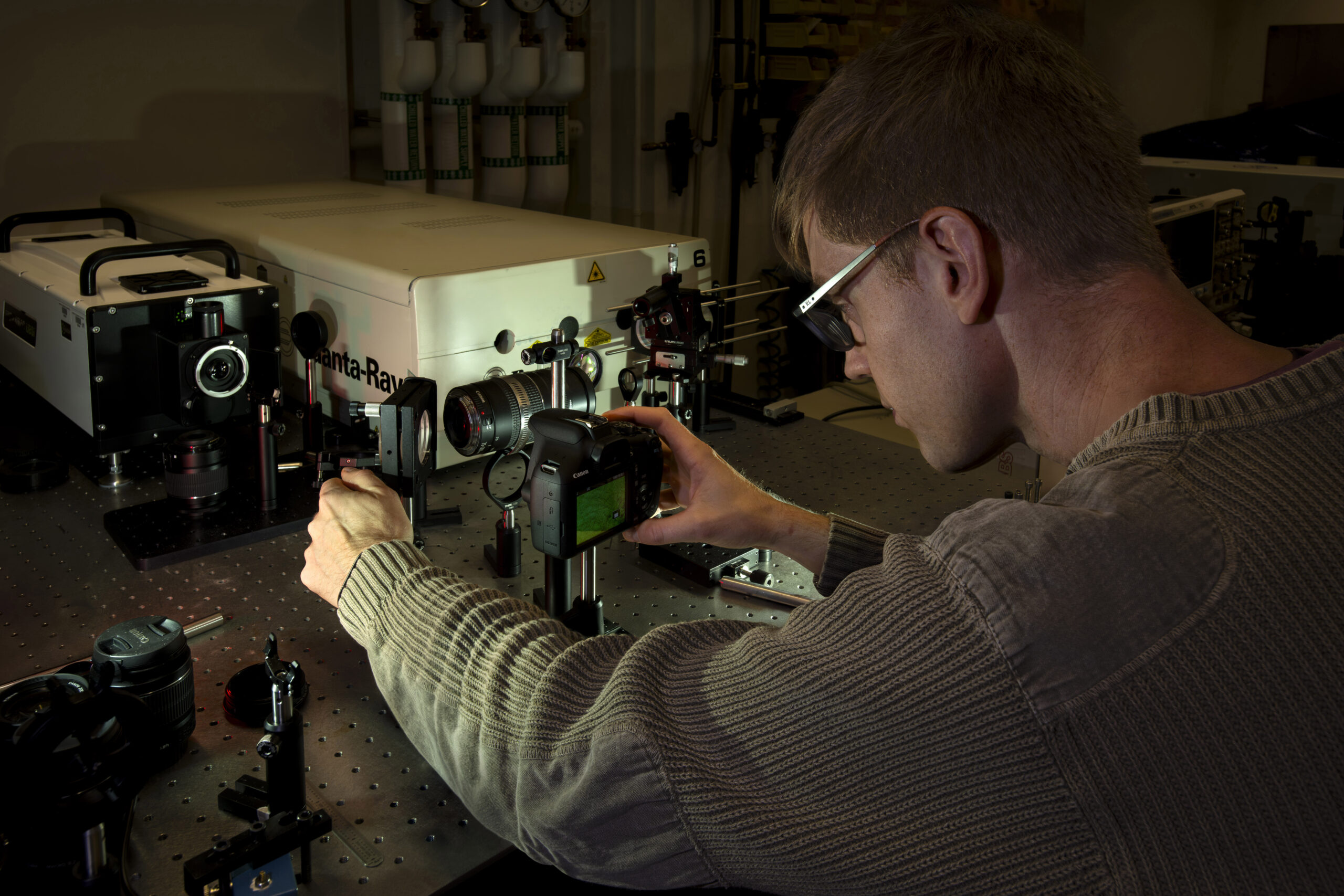Research at the Highest Level
As a graduate student at LLE, you’ll participate in research at the highest level with access to world-class laser facilities, high-performance computing, and a community of more than 200 researchers. Because our scientific staff focuses primarily on advancing research, they have time to work closely with you, offering mentorship and collaboration.
The lab’s multidisciplinary environment connects you with internationally recognized experts across diverse, interrelated fields, enriching your graduate experience and expanding your opportunities.






